If you hold many cryptocurrencies and want the best altcoin wallets to securely store, send, and receive them, then you will find the answers in this article.
Unlike some content you may have read, this article lists the ten best altcoin wallets on the market. It also goes beyond the basics to reveal its pros and cons, pricing, best storage measures to keep your assets safe, and so much more.
Table of Contents
If that sounds like what you’re looking for, then let’s get started right away!
What are Altcoins?
In simple terms, altcoins are cryptocurrencies aside from Bitcoin (BTC). Cryptocurrencies such as Ether (ETH), Litecoin (LTC), XRP, Solana (SOL), Dogecoin (DOGE), Cardano (ADA), and many others are regarded as altcoins.
Since the launch of Bitcoin in 2009, many blockchain projects have emerged on the premise of improving Bitcoin's features. The total number of altcoins has soared tremendously in the past few years. There were over 2,000,000 altcoins in existence at that time of writing.
For those looking for Bitcoin alternatives, these altcoins have become increasingly popular. They account for nearly 48% of the total market capitalisation, which indicates growing demand for altcoins.
That said, let’s examine the best place to store your altcoins.
Check our article on the best overall crypto wallets.
Where to Store Altcoins?
While some people view altcoins as more speculative assets, others see them as competitors to Bitcoin. Irrespective of what you think about altcoins, the bottom line is that they have become valuable over the years and should be kept safe at all times.
Altcoins are safely stored digitally, which could be in the form of hardware or an e-wallet. You can also choose to keep these tokens and coins on your mobile device or PC, depending on your storage preference.
Regardless of where you choose to store the altcoins, emphasis should be on the safety and ease of use of the wallet you intend to use. Let us now look at the different types of altcoin wallets.
Types of wallets
Before we examine the different types of cryptocurrency wallets, you should understand that all altcoin wallets are classified based on how they operate. Two wallet categories:
-
Hot Wallets
In simple terms, hot wallets are always connected to the internet. The entire process of storing and accessing your altcoins is done online. The process of setting up and making transactions on hot wallets is relatively easier compared to cold storage.
While the convenience of hot wallets is good for most cryptocurrency beginners, the setup process and regular usage can be hijacked by hackers. This is because the wallet's private keys are generated over the internet. Hot wallets are mostly used to conduct frequent transactions.
-
Cold Wallets
Cold wallets are the opposite of the hot version. They do not rely on the internet to store your keys as they are stored offline using a physical medium.
Since private keys are not stored on the internet, they are resistant to hacking attempts. To cold store altcoins, is a recommended strategy for long-term crypto holders since you won’t be conducting frequent transactions.
-
Web Wallet
This type of wallet works through internet browsers like Chrome, Firefox, Safari, Opera Mini, and Brave.
They come in the form of a browser extension that can be downloaded and installed on your browser. Metamask and Phantom are perfect examples of web wallets.
You can store as many cryptocurrencies as you like, depending on the types of coins and tokens the wallet provider supports.
-
Mobile Wallet
Here, you will be required to download and install the wallet application on your smartphone device, including Android and iOS-supported devices.
This type of wallet is convenient and easy to use. You can send funds by scanning a receiver’s QR codes as well as perform other interesting operations. An example of a mobile wallet is Trust Wallet.
Since the wallet relies on the internet to conduct transactions, they are prone to attacks and can be hijacked by criminals remotely if your private keys are compromised.
-
Desktop Wallets
Similar to mobile wallets, a desktop wallet is one that can be downloaded and installed on your PC, including Windows, Linux, and MacOS.
With a desktop wallet, you can perform all activities hosted on other wallet types, including storing, sending, and receiving altcoins.
Again, this type of wallet is flawed as it relies on the internet to function effectively. However, you get a level of protection with desktop wallets.
Upon installation, a file known as “wallet.dat” is locally stored on your PC, which contains the private key information that you can use to access the wallet.
You may want to consider encrypting the wallet.dat file with a password, which will be used to open the wallet anytime it is run.
Entering the password automatically helps the desktop wallet read the wallet.dat files and access your private keys without having to copy it at all times.
Wasabi is a popular example of a desktop wallet. Most cryptocurrency wallets also offer desktop applications available across several operating systems.
-
Hardware Wallet
This is a physical, electronic device that sometimes resembles a USB pen drive, card, smartphone, or whatever shape the company chooses. Hardware wallets do not totally rely on the internet. The setup process can be done offline, which uses a random number generator (RNG) to create your public and private keys.
Your private keys and altcoins are stored on the hardware, making it impossible for hackers to gain remote access to it. If you want to send funds, you will be required to press one or two buttons on the device, which will confirm that the wallet is being used by you.
A hardware wallet is considered the safest way to store your altcoins. Hence, you can store altcoins on Ledger Nano S and Trezor One.
Best Altcoin Wallets
Here is the full list of the best altcoin wallets you can use:
Best Wallet
- Price: Free
- Incorporated Exchange: Yes
- Wallet Type: Browser and mobile
Pros
- User-friendly App interface.
- Cheap transaction fees for $BEST holders.
- Supports multiple blockchain networks.
- Ensures 24/7 user assistance and support.
- Supports the management and storage of non-fungible tokens (NFTs).
- Allows users to stake cryptocurrencies and earn passive rewards.
Cons
- It contains advanced and complex features for crypto newbies.
- Integration with smart contracts may expose users to vulnerabilities.
Best Wallet was launched in 2024 and has built a good reputation among crypto users for its robust security features, including encryption, multi-factor authentication, and phishing protection.
Its user-friendly interface makes it a good option for experienced and inexperienced users. The wallet's native token, $BEST, is used for governance, allowing holders to participate in its decision-making processes and influence the project's future direction.
Ledger Nano X
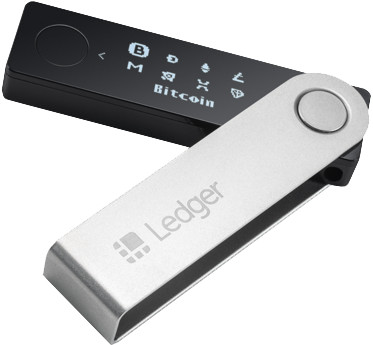
- Price: £136
- Incorporated Exchange: Yes.
- Wallet Type: Hardware
Pros
- Securely store, send, and receive over 5,500 altcoins and NFTs.
- It can be used on major PC and smartphone devices
- Users’ private keys are stored offline in the hardware wallet
- Extremely portable, weighing less than 35g.
- Supports staking of several PoS altcoins and stablecoins.
- Ledger has a strong reputation that dates back to 2014.
Cons
- The price may be too high for low-budget cryptocurrency investors.
- The device is equipped with Bluetooth connectivity, which poses security risks.
- Ledger has occasionally failed in its duty to secure personal user data. The company has also, on occasion, released upgrades that put user funds at risk.
The Ledger Nano X is an all-in-one altcoin hardware wallet solution. The device is developed with users’ security and convenience in mind, which is why the team behind the Ledger flagship has added all the relevant safety measures to keep your cryptocurrencies safe while making it possible for you to carry the wallet everywhere you go due to its lightweight.
Ledger’s consistency in developing high-end security cryptocurrency wallets was rewarded with the high-grade CSPN (First Level Security Certificate) certification issued by the French National Agency for Information Systems Security (ANSSI).
Trezor One
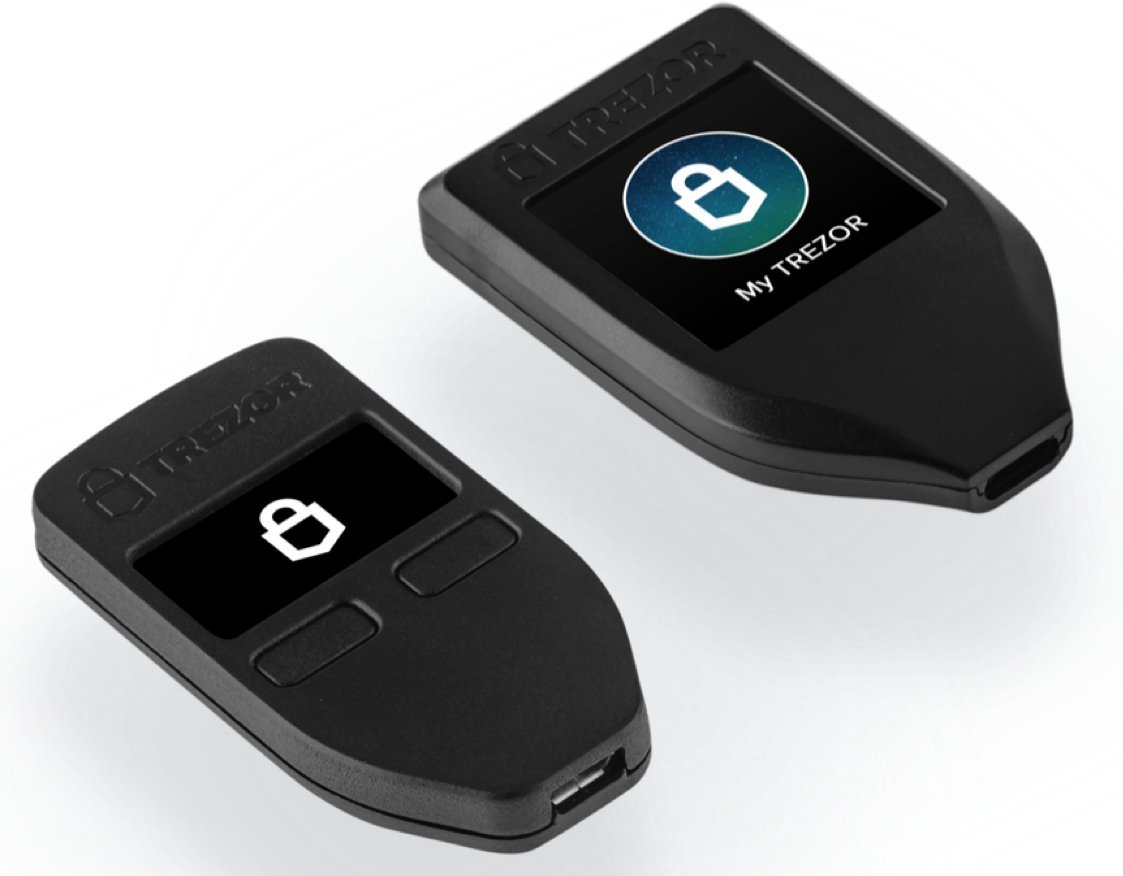
- Price: £51
- Incorporated Exchange: Yes
- Wallet Type: Hardware
Pros
- Easy to set up.
- Professional customer support.
- Supports more than 8000 cryptocurrencies.
- The wallet uses transparent, open-source code.
- Trezor One uses multi-layered security to protect your altcoins.
Cons
- It's less pocket-friendly due to its size.
- It does not support iOS or Windows devices.
- A few popular coins are also not supported
The Trezor One wallet is one of the best hardware wallets available at an affordable price. Despite the low cost of the Trezor Model One, the wallet has all the basic features and services found in its competitors.
The team behind the product has been in the crypto space since 2014, which has seen it add all relevant features and services to all Trezor devices, including the Model One, helping users have a hitch-free experience.
Trezor One weighs only 12g and has a screen size of 128 x 64 pixels, which is why the developers had to make the size a little bulky so that it wouldn't easily get lost.
Keepkey
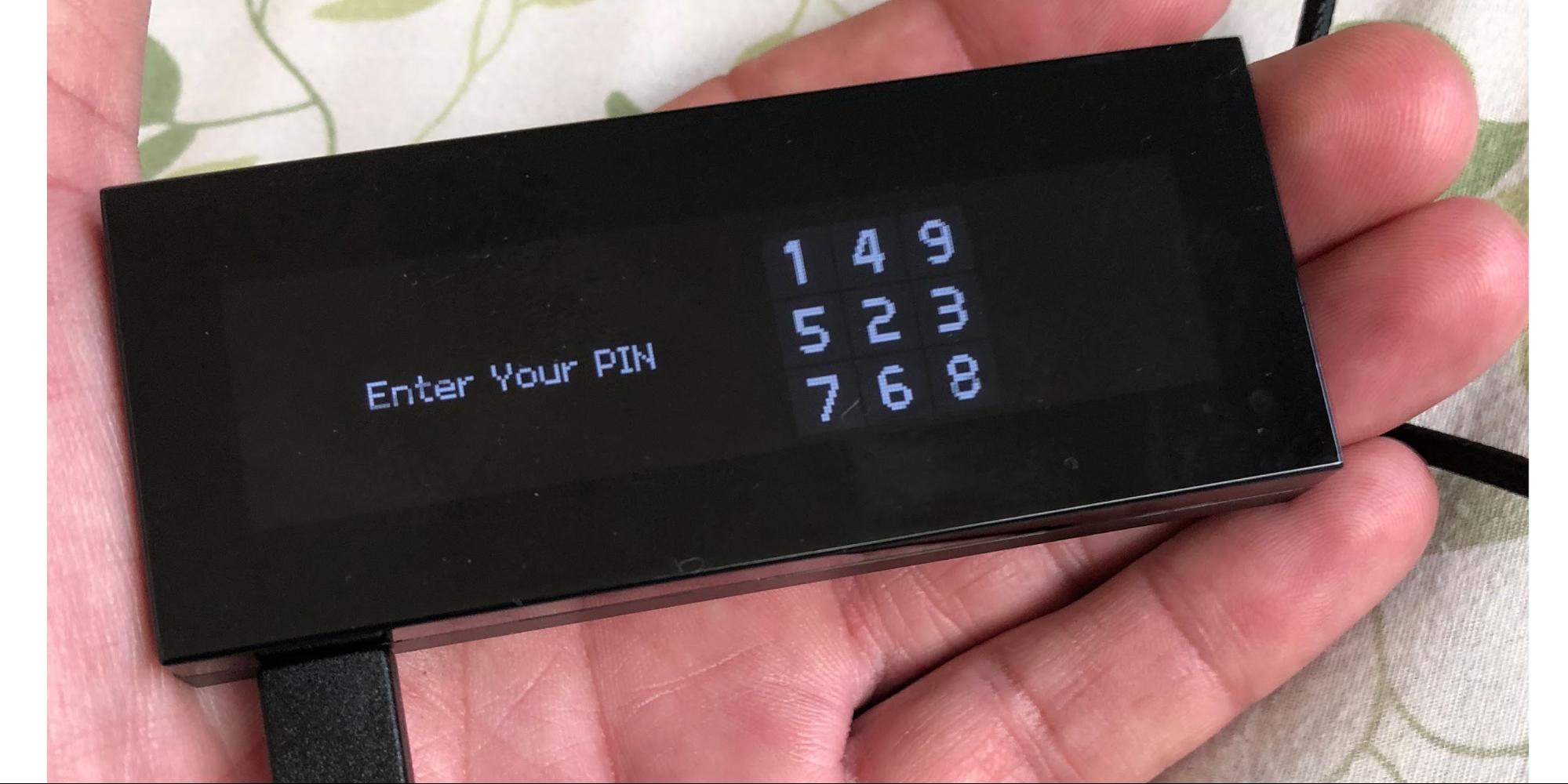
- Price: £64
- Incorporated Exchange: Yes
- Wallet Type: Hardware
Pros
- KeepKey uses open-source code.
- Stores altcoin using a 100% cold storage method.
- Includes a standalone application for building dApps.
- The device is equipped with a touchscreen for easy operation.
- It is notably one of the cheapest hardware devices storing altcoins
- The KeepKey wallet is ideal for DeFi investors, given its integration with Shapeshift.
Cons
- Supports fewer cryptocurrencies compared to Ledger and Trezor.
- The device does not automatically timeout while not in use, exposing clients’ funds to risk.
Initially launched as a fork of the Trezor wallet in 2015, the developers of KeepKey made a few changes, including giving the hardware wallet more premium looks and a larger screen. The idea behind the innovation is to grant users a better experience in storing, sending, and receiving cryptocurrencies.
In 2017, KeepKey was acquired by Swiss cryptocurrency exchange ShapeShift, giving users the platform to easily convert cryptocurrencies with ease.
Trust Wallet
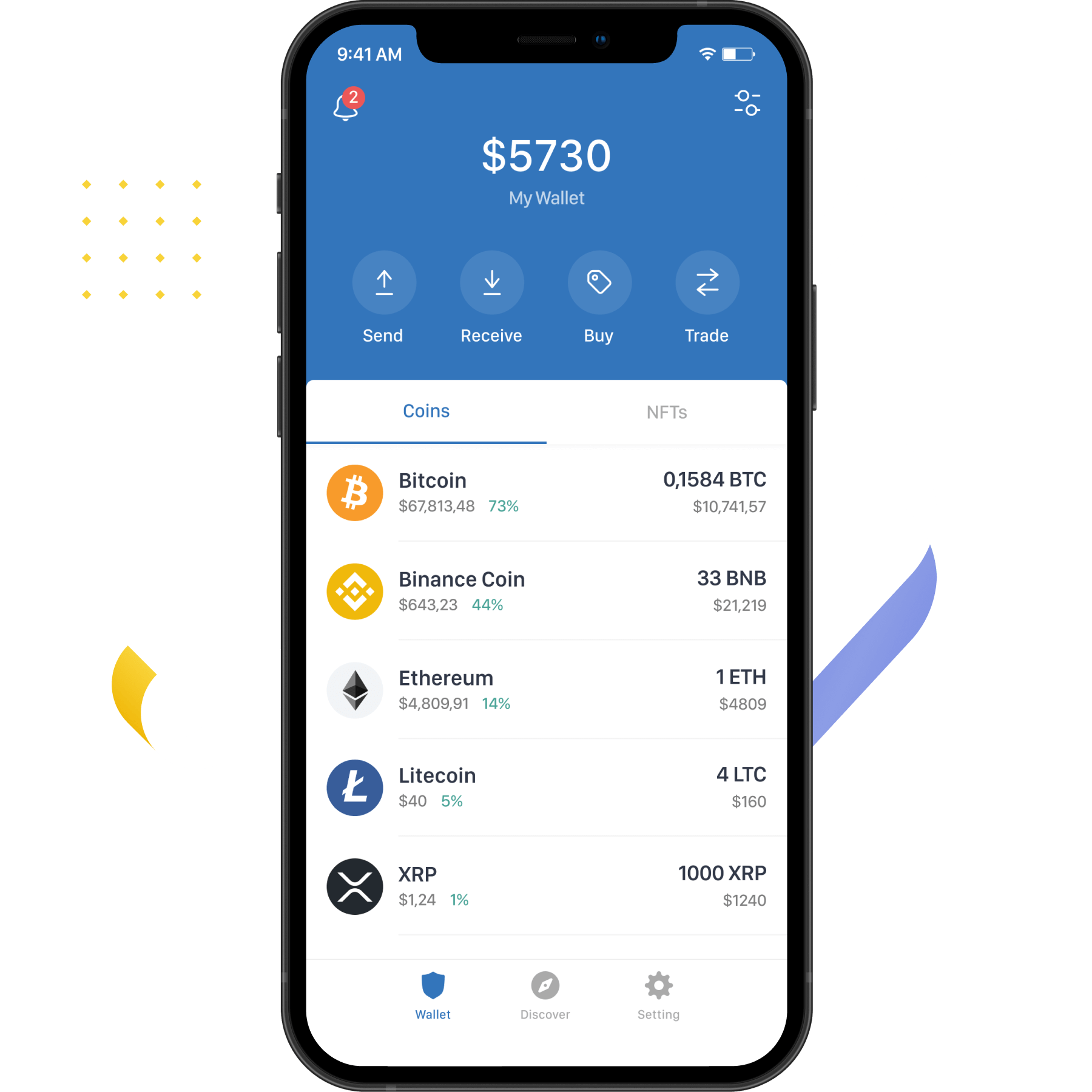
- Price: Free
- Incorporated Exchange: Yes
- Wallet Type: Mobile
Pros
- The wallet supports the staking of different PoS coins.
- The app is user-friendly and boasts advanced security features.
- Users can securely buy, trade, and swap thousands of coins and tokens.
- Trust Wallet supports different blockchains and gives you access to various decentralised applications (dApps).
Cons
- Trust Wallet is only available on mobile devices.
- Insufficient details of fees associated with the in-built exchange feature.
Launched in 2017 by Six Days LLC., Trust Wallet is one of the most popular cryptocurrency wallets. It supports most of the popular blockchains, including Ethereum, BNB Chain, Solana, Polygon (MATIC), and most EVM-based networks.
Although Trust Wallet uses a hot storage method to store your altcoins, the developers have integrated all the essential safety measures to keep you safe from bad actors, the only thing required of you is to use the measures exhaustively.
Trust Wallet became the official Binance wallet back in 2018 after the popular exchange acquired it. With Trust Wallet, you can buy, trade, and swap the thousands of cryptocurrencies supported on the platform. You can also access different decentralised applications using the wallet’s in-built Web3 browser.
Coinomi
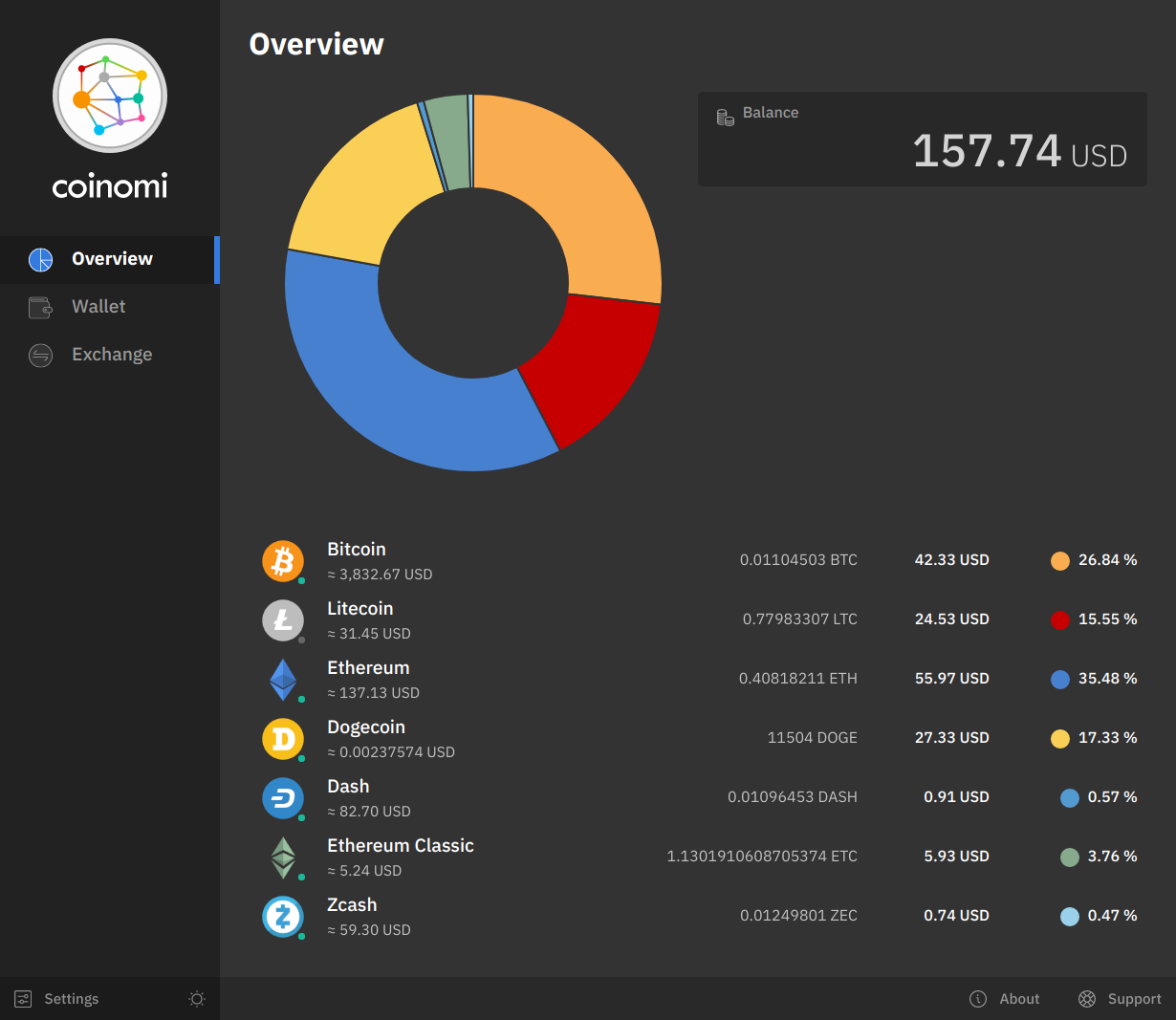
- Price: Free
- Incorporated Exchange: Yes
- Wallet Type: Mobile
Pros
- Free-to-use
- Solid reputation since 2014
- Professional customer support unit.
- Uses high-security features like HD algorithms and IP masking
- Users can buy and sell cryptocurrencies through integrated exchanges - Changelly and ShapeShift.
Cons
- Coinomi wallet code is no longer open-source
- The wallet is not ideal for using DeFi applications.
In 2014, Coinomi launched as an Android-only altcoin wallet, providing support for only popular cryptocurrencies such as Bitcoin, Ethereum, Litecoin, and Bitcoin Cash.
However, the wallet has since grown into a force to reckon with, as it now supports iOS devices and can be downloaded on several PC OS, including Windows, macOS, and Linux.
The wallet has also added support for more than 1,700 coins, allowing you to store all your favorite altcoins in one place.
MetaMask
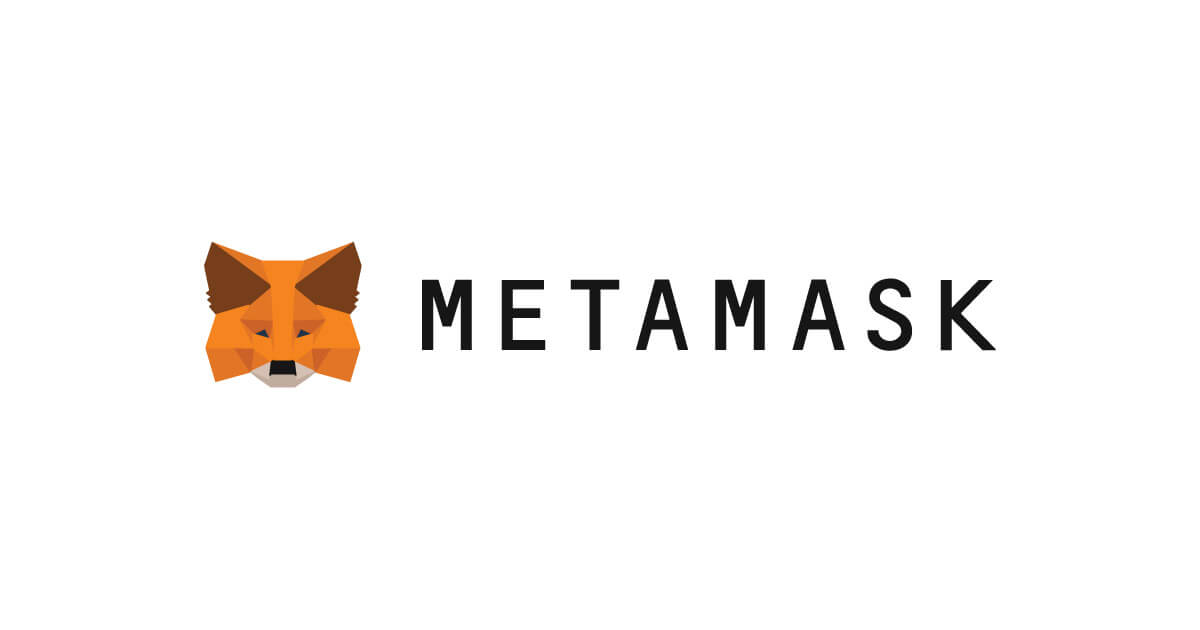
- Price: Free
- Incorporated Exchange: Yes
- Wallet Type: Browser and mobile
Pros
- Wallet codes are open-source.
- The app is especially ideal for DeFi apps.
- Metamask is also a popular choice for blockchain developers.
- Users can safely buy and sell mainly Ethereum-based tokens via the integrated exchange features.
- Works as a web extension and mobile app.
- Metamask supports most EVM-compatible networks, including BNB Chain, Polygon, Avalanche, etc.
Cons
- Your private keys are stored in your browser, exposing you to risk.
- Does not include native support for new-age networks such as Solana and Elrond.
MetaMask Wallet first started as a browser extension like Chrome and Firefox in its early days. However, the wallet has since have added support for Android and iOS devices.
The wallet was originally designed to store Ethereum-based tokens, but recent upgrades now allow users to add coins from other blockchains via the network section of the wallet. Although it is completely free, MetaMask is equipped with advanced security measures like advanced passphrase and HD backup settings.
Since its launch, MetaMask has not suffered any significant hacks, which goes to show that the team is working effortlessly to prevent a hack from happening.
Coinbase Wallet

- Price: Free
- Incorporated Exchange: Yes
- Wallet Type: Web & Mobile
Pros
- The user interface (UI) is very friendly.
- Coinbase Wallet boasts a degree of high security.
- The app is ideal for accessing Ethereum-based DeFi apps.
- The application supports a range of altcoins, especially Ethereum-based tokens.
Cons
- Other competitors support more altcoins.
- The app primarily supports Ethereum, Solana, and a few EVM networks.
Coinbase Wallet is another popular application where traders and investors store their altcoins. The wallet is not to be confused with Coinbase.com, the exchange platform owned by the same company. Unlike the exchange where the platform holds your private key, Coinbase Wallet lets users store their private key or seed phrase.
Exodus Wallet
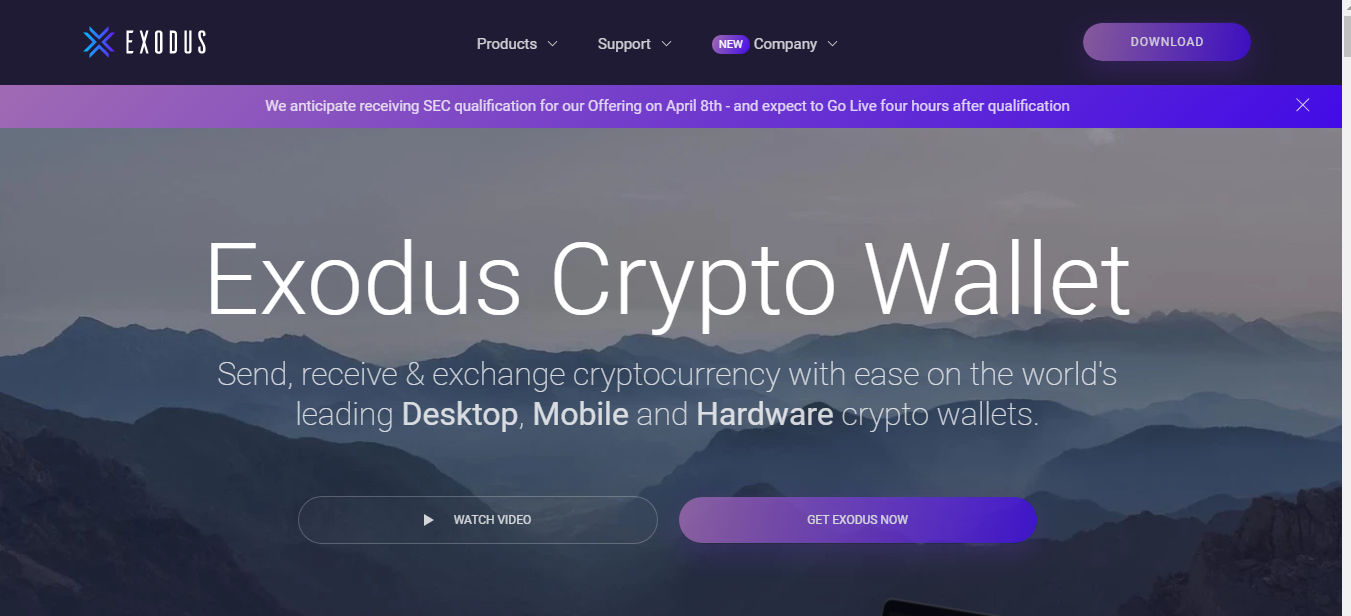
- Price: Free
- Incorporated Exchange: Yes
- Wallet Type: Desktop and Mobile
Pros
- Easy-to-use
- Supports multiple cryptocurrencies
- Available for download on PC and mobile.
- Users can exchange supported coins and tokens on the wallet platform via the ShapeShift integration.
Cons
- Less-friendly for accessing DeFi apps
- Exodus is a hot wallet, making it less secure than hardware options.
The Exodus Wallet is specifically designed for new investors. It offers free, secure, and easy-to-use software that can be downloaded on PC and mobile devices. Aside from its highly secured storage solution, users can also exchange supported altcoins for one another via the integrated exchange feature.
OKX — Best Altcoin Exchange
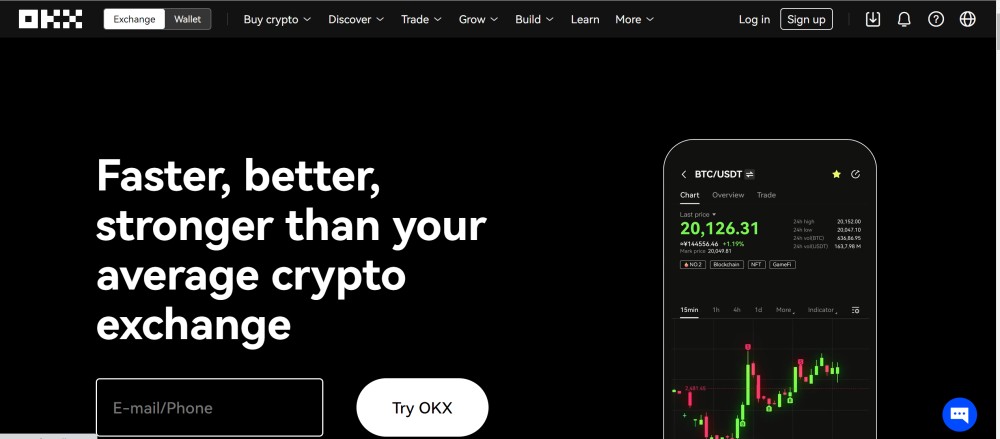
- Price: Free
- Incorporated Exchange: Yes
- Wallet Type: Web and Mobile
Pros
- Healthy selection of altcoins
- Available on multiple devices
- Users can securely buy, sell, and store altcoins on OKX
- OKX users can invest in upcoming altcoins through a launchpad service.
- The exchange offers a range of features, including spot, derivative, and savings products for altcoins.
Cons
- Ideal for experienced investors
- OKX does not directly support fiat deposits
OKX (formerly known as OKEx) was launched in 2017 and has become one of the most used platforms for altcoin investors. The exchange has a solid reputation, giving you the assurance that you will surely get a refund if your cryptocurrencies are hacked by bad actors.
However, before this can happen, the hack must not be a result of your carelessness. OKX's in-built security measures include two-factor authentication (2FA), SMS and email authentication, among others.
KuCoin
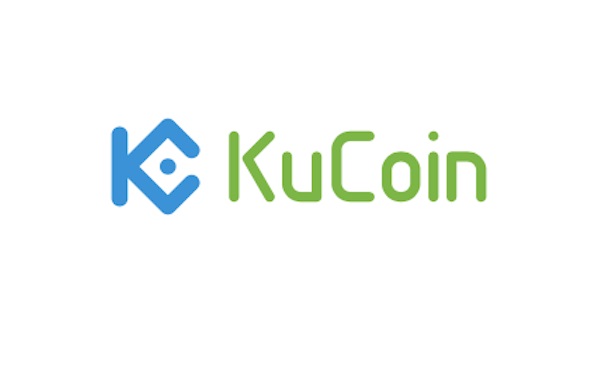
- Price: Free
- Incorporated Exchange: Yes
- Wallet Type: Desktop Web and Mobile
Pros
- Users can buy, sell, and store various altcoins.
- The mobile app is intuitive and ideal for on-the-go investors.
- KuCoin often lists new projects, allowing investors to get early access via its’ “Spotlight” platform.
- KuCoin boasts a relatively faster customer support service than competitors.
Cons
- The exchange has often come under the radar for listing shady crypto projects
- KuCoin is not an ideal option for beginners.
KuCoin is a centralised exchange that allows users to buy, sell, and store Bitcoin as well as various altcoins. The exchange is one of the most widely used in the industry and offers advanced features such as leverage and margin trading for supported altcoins.
What Should You Look for in an Altcoin Wallet?
Now that you’ve seen our selection of the best altcoin wallets, it is advisable that you conduct due diligence to make the perfect choice. In the next section, we’ve highlighted some factors that can guide your judgment in choosing the best wallet, and they include:
- Security
Without much effort dedicated toward keeping your cryptocurrency safe and secure, the whole idea of storing the altcoins in the first place will be wasted.
Cryptocurrencies have grown to become so valuable over the years that hackers are working around the clock to exploit loopholes found in crypto wallets to cart away users’ funds. To avoid such incidents, your selected provider should equip the wallet with the latest and most advanced security measures.
Additional safety measures like a two-factor authentication (2FA) service, SMS and email authentication should be added to prevent criminals from gaining remote access to your altcoins.
- Customer Support
When you encounter any issue with your wallet, you probably want the problem to be resolved swiftly. Hence, ensure that your preferred wallet has professional support channels that address customers’ complaints and enquiries in the shortest possible time.
If possible, choose a wallet that has a 24/7 support service to be sure that whenever the need to use the service arises, you can be attended to by an agent (not bots). In addition, a wallet provider that offers multiple ways in which users can reach out to them should be rated above another that supports only one method.
- Ease-of-Use
You don't have to be a techie before you can conveniently operate the altcoin wallet. The wallet provider should have crypto beginners in mind when developing the wallet, this way, you can be sure that anyone can use it.
Tips about how to set up, send, and receive funds should be properly documented by the developers, as well as integrated into the wallet’s interface, which helps you not to get lost while using it.
- Supported Coins
As stated earlier, there are over 2,000,000 cryptocurrencies in existence, and it is only fair that your chosen wallet supports as many as possible. It would be nice for the wallet to support multiple cryptocurrencies because after starting off with your favorite coins, you may want to invest in other cryptocurrencies over time, especially when you are given a call by an expert about the coin’s prospects.
Based on this illustration, it would be awkward to sign up for another wallet simply because your first choice does not support the coin you recently picked interest in.
- Positive User Reviews
Past users’ rating of the wallet is gives you insight into what past and existing users think about the application and its developers. This information can help you decide whether you should go on to use it.
How to Get a Wallet
Regardless of whether the wallet uses a cold or hot wallet procedure to keep users’ funds safe, one important thing to take note of is that the developers have an official website where you can either download the application or order the wallet.
We have included the links in the heading of each of the recommended wallets for your convenience.
Note: Be careful to avoid downloading the wallet software from an unofficial link. The fake website could be infected with malware that easily steals your private keys.
The same applies if you opt for a hardware wallet. Only order the package from the manufacturer’s website or from a recommended dealer. Never accept a hardware wallet with a broken seal unless it has anti-tamper-proof technology. Doing anything contrary to this could result in severe loss of funds.
How to Keep Your Altcoins Safe
Cryptocurrencies have grown to become valuable assets, and as such, the need to keep them safe cannot be overemphasized. Based on this, we’ve highlighted a few points on how you can safely keep your altcoins safe:
- If You Can, Use a Hardware Wallet
Hardware wallets have been tipped as the most secure altcoin wallets because of their ability to store your funds offline.
With funds safely stored offline, hackers cannot gain access to them. Also, the hardware wallet user is required to press a button or two to confirm transactions before sending. Since the hacker would most likely operate from a remote location, he or she cannot possibly lay hands on your device to perform the operation unless the theft is being perpetrated by an insider.
- Exhaust All Safety Measures
Wallet providers have done their bit to integrate additional security features that require your permission before they can start working.
Features like Google 2FA, email, and SMS authentication will need you to enable them before they can start functioning as they should.
Do well to exhaust all available safety measures provided to keep your altcoins safe always.
- Secure Your Recovery Phrase In Multiple Locations
Some new investors often hurriedly set up their wallets to store their altcoins without thinking about how to also store their recovery phrases. The recovery phrase is a list of 12 to 24 words representing the secret data that helps generate your account’s public and private keys.
Users are asked to confirm the phrase after the words are first displayed on the screen, which by default shows that the phrase was successfully written down. If this is the case, then you should keep the written phrase in a safe place with maximum security and possibly in multiple locations.
Frequently Asked Questions (FAQs)
How Many Altcoins Exist?
At the time of writing, there were over 2,000,000 known altcoins.
What’s the Difference Between Altcoins and Tokens?
‘Altcoin’ or alternative coins is a term that refers to cryptocurrencies that are not Bitcoin. Tokens, however, refer to assets created on top of another blockchain. Blockchain networks like Ethereum and Solana allow projects to create their own coins/tokens which could also be called altcoins.
What Are the Most Popular Altcoins?
There are so many popular altcoins in the market, but for the purpose of this section, we would list a few, such as Ether (ETH), Binance Coin (BNB), Ripple (XRP), Dogecoin (DOGE), Solana (SOL), Polygon (MATIC), Monero (XMR), Shiba Inu (SHIB), etc.
How Do I Buy Altcoins?
The two main ways to get the altcoins are to purchase them from an exchange or via a peer-to-peer (P2P) platform. Interestingly, there are hundreds of cryptocurrency exchanges where you can buy and sell altcoins. It is up to you to conduct due diligence to know the best trading platform to use and which exchange is allowed to function in your country of residence.
Final Thoughts
True to our promise, this article provided a list of the best altcoin wallets to use. As previously stated, hardware wallets are regarded across the industry as the best to use, especially in a scenario where you have a large and long-term crypto portfolio.
On the other hand, mobile and desktop wallets suit the needs of on-the-go users who probably have to make several transactions. Users must conduct due diligence to find the best way to store altcoins and carefully choose a wallet that satisfies their needs.





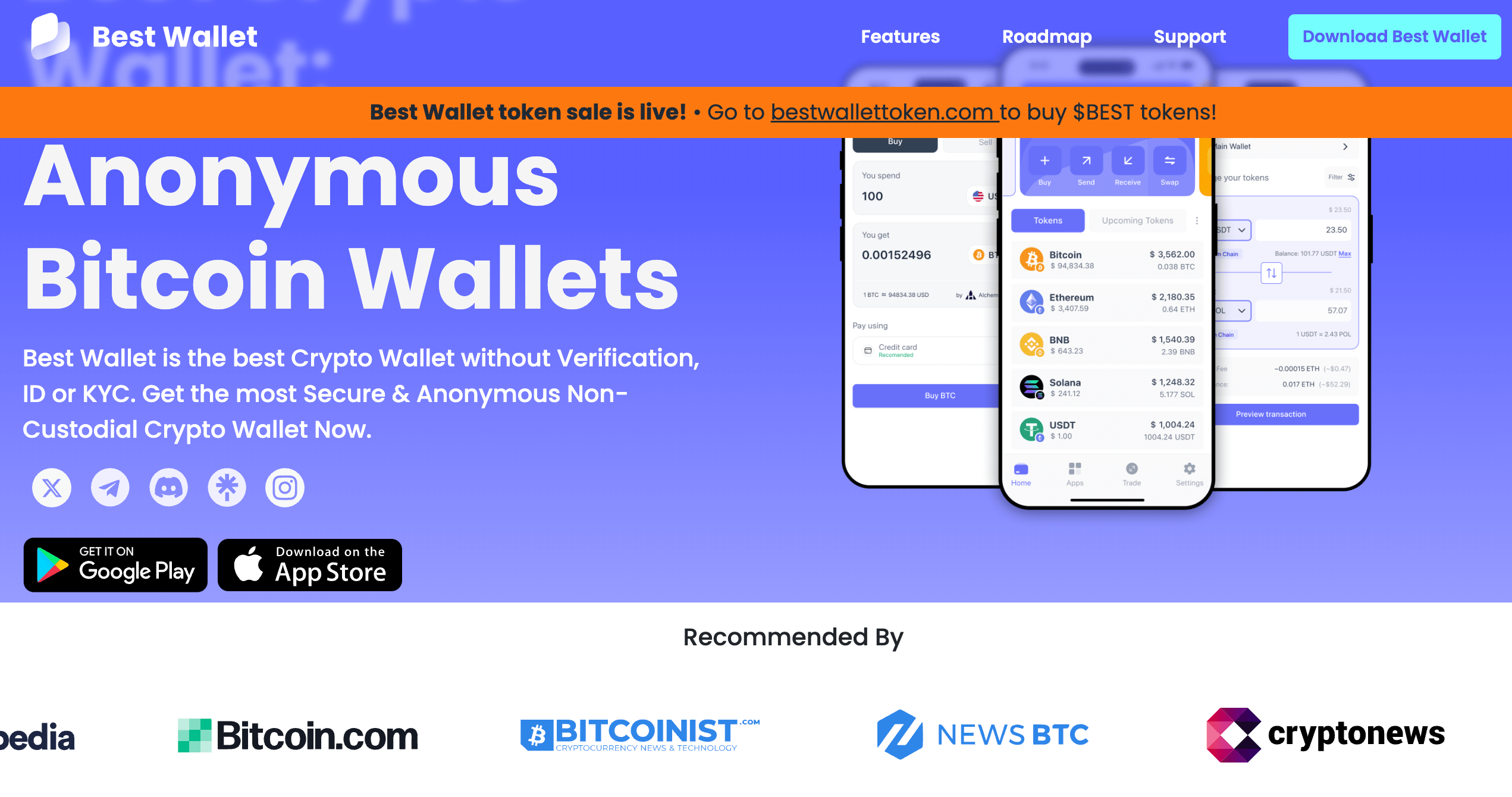
 usdt
usdt xrp
xrp

